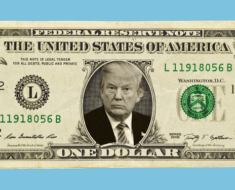It’s exactly one year since the President of the United States Donald Trump started a trade war with the People’s Republic of China. This is a multibillion dollar war that sent ripples to the world economy. According to the New York Times, Donald Trump main aim was to curb the lavish government spending that Beijing had embarked on. This spending according to economic experts targeted the industries of the future such as commercial aircraft industry, robotics industry as well as the computer chip industry.
Companies that have been mostly affected by the trade war are those in the semiconductor manufacturing. For instance, NASDAQ composite index that heavily relies on technology recorded a drop in 3.4 percent. The commodities that were affected most by the trade include copper and Soybeans. American technological giant Apple is one of the companies that has been affected most by the trade war considering that China is the largest consumer of iPhone. Apple also relies on China to produce most of its gargets. Since the trade war began, the sale of iPhone in China has dropped by 5.8 percent.
Boeing shares dropped by 4.9 percent and this is seen as a major drop considering that the company is considered as one of biggest exporters in America. Another company that was affected by the drop is Wynn Resorts, a company whose operations are enabled by casino operations in China. It’s reported that its shares dropped by 6.2 percent.
At the moment the two countries are trying to find a solution to the conflict with the Trump administration discovering how difficult it is to deal with the Chinese. Late last week the talks between the two countries stalled as the two accused each other over subsidies. The United States is being represented by Robert E. Lighthizer who accused China of trying to banish what he referred as market distorting subsidies. On the other side China is being represented by Liu He who termed the standstill as normal. Mr. He also said that China is approaching the discussions with an open mind but warned that the country will not be willing to compromise on its principles.
President Trump announced late on Friday that he will be raising tariffs on Chinese goods to 200 billion dollars every year with the policy expected to start immediately. The President instructed Mr. Lighthizer to begin the process of increasing the tariffs on the said goods on 13th May 2019. The United States continues to insist that it will only agree with China if the country enshrines subsidies limits with the country’s laws. On its part, the People’s Republic of China insists that no foreign nation can dictate how the laws are made in the country. Since time immemorial, China has always offered its homegrown industries subsidies and this has given the Chinese companies a competitive edge over American companies. China has also being accused by the United States of helping high tech industries such as self-driving cars and the microchips industries. Most of these subsidies according to economic experts come in the form of cheap loans that are provided by banks that are controlled by the Chinese government. The Chinese authorities have also been accused of using unwritten rules and written rules to block foreign companies of acquiring local government contracts. However, Beijing has agreed to act in the subsidies that go against the World Trade Organization. At the same time, Beijing has said that it will from time to time disclose some information regarding its subsidies.
Dil Bole Oberoi





